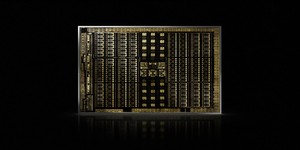
With news that Tim Sweeney is moving his primary focus to console game engine development, PC gaming doesn't look to be in great state at the moment.
John Carmack, one of the most respected games developers in the industry, has spoken out about the recent debate surrounding PC games development and also talked about the possibility of ray-tracing in games in a recent interview with PC Perspective.
"From a developer stand point the uncomfortable truth is that the console capabilities really dominate the development decisions today. If you look at current titles and how they’ve done on the console, you know, high end action GPU based things, the consoles are so the dominate factor that it’s difficult to set things up so that you can do much to leverage the really extreme high end desktop settings," said Carmack.
He also shared his thoughts on the move to multi-GPU graphics subsystems – and his opinions differed greatly from Tim Sweeney's. "I've always been a big proponent of these high end boutique systems – way back from the early days of 3dfx I always thought it was a real feather in their cap early on that they could pay more money and have a bigger system and have it double up and just go faster," Carmack said.
"I think it’s a really good option and certainly companies like Nvidia and AMD are throwing all the resources they possible can at making the newer, next-generation cards. But to be able to have this ability to just pay more money and get more performance out of a current generation is really useful thing to have," he added.
Carmack also talked about ray-tracing during the interview, offering some interesting insights into what might happen when Intel enters the market with its many-core Larrabee architecture – one thing that Intel has been pushing has been ray-tracing.
"I’m not really bullish on [ray-tracing in a classical sense] taking over for primary rendering tasks which is essentially what Intel is pushing," said Carmack. "There are large advantages to rasterization from a performance standpoint and many of the things that they argue as far as using efficient culling technologies to be able to avoid referencing a lot of geometry, those are really bogus arguments because you could do similar things with occlusion queries and conditional renders with rasterization. Head to head rasterization is just a vastly more efficient use of whatever transistors you have available.
"But, I do think that there is a very strong possibility as we move towards next generation technologies for a ray tracing architecture that uses a specific data structure; rather than just taking triangles like everybody uses and tracing rays against them and being really, really expensive [from a performance perspective]," Carmack continued.
Carmack said he's been pitching his ideas to the industry's key hardware vendors and he believes that Intel's push towards a conventional ray tracer "is unlikely to win out."
Finally, he also talked a bit about Nvidia's acquisition of Ageia. Carmack has been very public on his feelings about hardware-accelerated physics—specifically referring to Ageia—and it seems that his opinion hasn't changed much. "That was one of those things where it was a stupid plan from the start and I really hope Nvidia didn't pay too much because I found the whole thing disingenuous. Many people from the very beginning said their entire business strategy was to be acquired because it should have been obvious to everybody that the market for an add-in physics card was just not there."
In the rest of the interview, there's a lot more insightful commentary on where the games development and hardware industry is going – it really is well worth the read, even if some of it does get quite deep.
You can of course discuss his thoughts on the industry's direction in the forums.
John Carmack, one of the most respected games developers in the industry, has spoken out about the recent debate surrounding PC games development and also talked about the possibility of ray-tracing in games in a recent interview with PC Perspective.
"From a developer stand point the uncomfortable truth is that the console capabilities really dominate the development decisions today. If you look at current titles and how they’ve done on the console, you know, high end action GPU based things, the consoles are so the dominate factor that it’s difficult to set things up so that you can do much to leverage the really extreme high end desktop settings," said Carmack.
He also shared his thoughts on the move to multi-GPU graphics subsystems – and his opinions differed greatly from Tim Sweeney's. "I've always been a big proponent of these high end boutique systems – way back from the early days of 3dfx I always thought it was a real feather in their cap early on that they could pay more money and have a bigger system and have it double up and just go faster," Carmack said.
"I think it’s a really good option and certainly companies like Nvidia and AMD are throwing all the resources they possible can at making the newer, next-generation cards. But to be able to have this ability to just pay more money and get more performance out of a current generation is really useful thing to have," he added.
Carmack also talked about ray-tracing during the interview, offering some interesting insights into what might happen when Intel enters the market with its many-core Larrabee architecture – one thing that Intel has been pushing has been ray-tracing.
"I’m not really bullish on [ray-tracing in a classical sense] taking over for primary rendering tasks which is essentially what Intel is pushing," said Carmack. "There are large advantages to rasterization from a performance standpoint and many of the things that they argue as far as using efficient culling technologies to be able to avoid referencing a lot of geometry, those are really bogus arguments because you could do similar things with occlusion queries and conditional renders with rasterization. Head to head rasterization is just a vastly more efficient use of whatever transistors you have available.
"But, I do think that there is a very strong possibility as we move towards next generation technologies for a ray tracing architecture that uses a specific data structure; rather than just taking triangles like everybody uses and tracing rays against them and being really, really expensive [from a performance perspective]," Carmack continued.
Carmack said he's been pitching his ideas to the industry's key hardware vendors and he believes that Intel's push towards a conventional ray tracer "is unlikely to win out."
Finally, he also talked a bit about Nvidia's acquisition of Ageia. Carmack has been very public on his feelings about hardware-accelerated physics—specifically referring to Ageia—and it seems that his opinion hasn't changed much. "That was one of those things where it was a stupid plan from the start and I really hope Nvidia didn't pay too much because I found the whole thing disingenuous. Many people from the very beginning said their entire business strategy was to be acquired because it should have been obvious to everybody that the market for an add-in physics card was just not there."
In the rest of the interview, there's a lot more insightful commentary on where the games development and hardware industry is going – it really is well worth the read, even if some of it does get quite deep.
You can of course discuss his thoughts on the industry's direction in the forums.

MSI MPG Velox 100R Chassis Review
October 14 2021 | 15:04








Want to comment? Please log in.